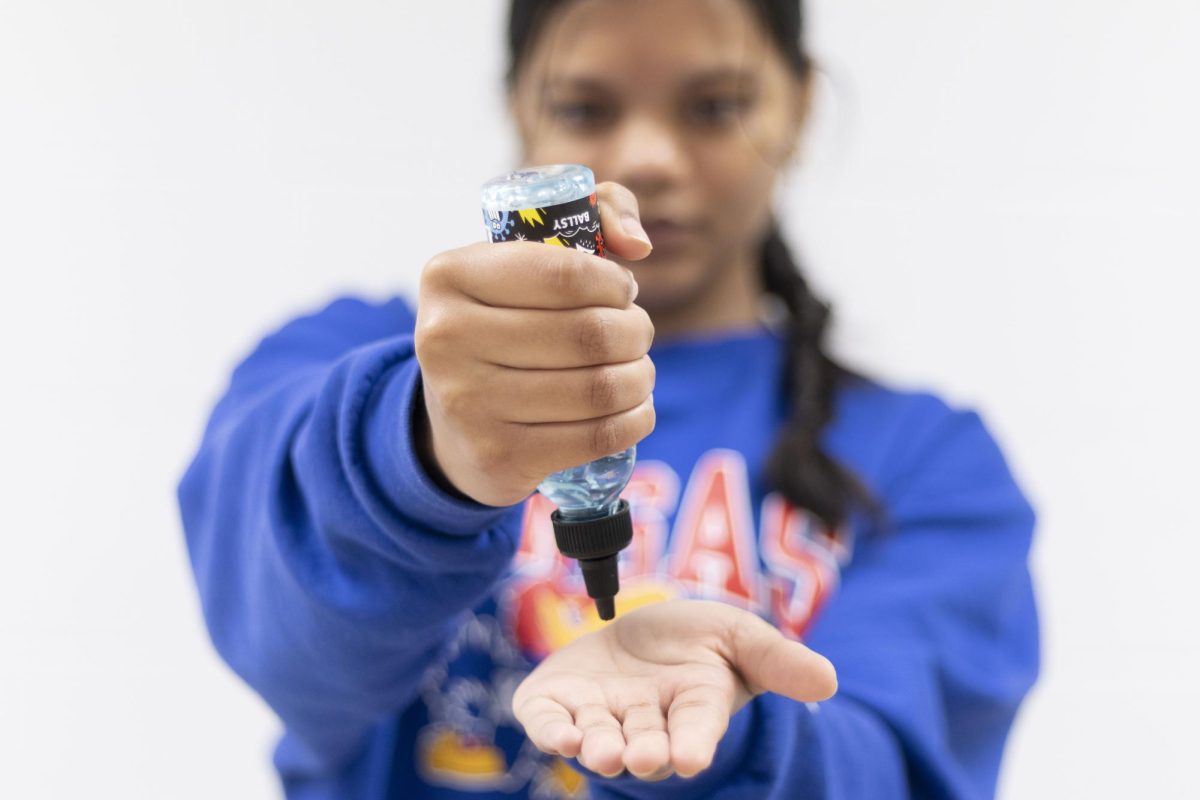Feeling as though her appendix might burst, senior Payton Porter said she panicked and urgently called her mom, demanding a trip to the emergency room. After a while, Porter said she calmed down and realized her panic stemmed from what turned out to be a casual stomach ache.
Now, Porter said she begins to ask herself if she has cancer when a small health problem arises, like an occasional headache, which makes her spiral into a deep hole filled with anxiety.
“I feel like being a hypochondriac is [when] one little tiny thing is wrong with you, and it’s not that big of a deal, but you kind of just make it a bigger deal and start freaking [out],” Porter said.
In other words, Licensed Clinical Professional Counselor Libby Rooney said illness anxiety disorder typically begins with symptoms resembling those of obsessive-compulsive disorder, where recurrent negative thoughts overwhelm an individual, disrupting daily life. Rooney said she takes a blend of cognitive behavioral therapy and exposure therapy to help her adolescent clients struggling with an illness anxiety disorder.
“I really want my clients to understand that when they have those thoughts, it’s a well-meaning beautiful part of them that’s trying to protect them from any possible thing that could go wrong,” Rooney said. “We need our protector parts, just not all the time.”
One of Porter’s fears that she developed in second grade was emetophobia, the fear of throwing up. She said she would purposely avoid foods that she believed would cause stomach issues.
“It was just this whole anxiety thing and I would always think, ‘Oh, my stomach hurts, I’m going to throw up,’” Porter said. “It would just be kind of one small thought that would spiral into something much bigger.”
Illness anxiety disorder can occur in various forms, such as germaphobia. Senior Krisha Kare said she considers herself one.
Kare said her weakened immune system contributed to her being easily susceptible to illness.
“My immune system has been really weak since childhood because I’ve had a lot of allergies and I take a lot of allergy medicines. I’ve also traveled a lot which can cause low immunity because I’m in different weather constantly when I move around,” Kare said.
During a visit to India, Kare said she attended a street food-tasting event filled with crowds of people walking on filthy streets. After this occurrence, Kare said she developed a severe fever and cough, heightening her germaphobe tendencies.
Porter said she missed two school days last year due to the norovirus outbreak. She said her anxiety tends to flare up when an illness is heavily talked about. She added how the norovirus made her worried since the main symptom was throwing up.
“When people are like, ‘Oh my gosh, this horrible sickness is going around’ then I kind of freak out,” Porter said. “And it was throwing up, so that’s why I freaked out even more.”
During the COVID-19 pandemic, Kare said her germaphobia intensified as she feared for her health considering the possible amount of germs from the unfamiliar disease. She said she took many preliminary precautions like washing her hands regularly and wearing a mask throughout the day, including at lunch.
“I used to eat a good breakfast so I wouldn’t have to take my mask off,” Kare said. “Everybody [was] eating, so there [would] be a possibility that germs might spread.”
Furthermore, Kare said she doesn’t share drinks with her friends and she doesn’t let other people’s feet on her bed.
“I let them put their feet on [my bed] but I don’t express it. On the inside, I’m just terrified. It bothers me in a way that I want to change my bed sheets as soon as possible,” Kare said.
Kare’s dad, Ramana Kare, said Kare’s germaphobia developed intensely after the pandemic. Now, Ramana said Kare washes her hands and sanitizes routinely before and after activities and meals that could come in contact with germs. He also said how he helps ease Kare whenever germs trigger her.
“Some advice I give Krisha is that it is just a part of life and that germs can be everywhere, [but] that doesn’t mean we have to worry about it too much,” Ramana said.
BVNW school nurse Haley Murkin said she notices a trend among students enrolled in health science classes, such as Anatomy & Physiology, Child Development & Human Growth and Zoology, who more commonly fear a symptom over a topic they previously knew.
“It seems to be [that] when you’re more educated on certain conditions, you start to think in the back of your mind like ‘Wow, do I have that?’” Murkin said. “I’ve talked to a few people that have said ‘Well, I’ve seen this in my class’ or ‘I learned about it’ and [they] think they have it.”
Recently, Murkin said a student came in with chest pain, thinking it was some type of lung disease. However, after a medical assessment, Murkin said she discovered it was minor acid reflux incorporated with anxiety.
Additionally, Murkin said there’s an increase in office visits toward the end of the academic year as students grapple with heightened stress levels, rendering them more susceptible to exhaustion. She added how fatigue could contribute to individuals excessively scrutinizing their health status.
“When you’re tired, your body can be out of whack and make you feel like you’re getting sick,” Murkin said. “There’s a lot of stuff that people will come in thinking they [have], and when we get down to it, they realize it’s probably not the end of the world.”
Other individuals afflicted with an illness anxiety disorder may resort to scouring the internet for symptoms.
“I’m always [looking up] ‘What happens? What does it mean if this hurts?’” Porter said. “If it hurts, then I’ll Google it and it’ll tell me ‘you’re going to die’ and then I start freaking out.”
To cope with anxiety regarding one’s health, Porter said when she feels anxious, her mom, Anna Holland, gives her advice to overcome those emotions.
“[My mom] said that once you feel all the anxiety coming, just realize that you are [a] hypochondriac, and it’s not real,” Porter said. “I just catch myself in that moment and reassure myself that it’s not that big of a deal.”
Holland said she wants Porter to know she is not alone, knowing that everybody struggles mentally in some way.
“So I think, just with Payton, knowing her because I’m her mom, I know what her triggers are and things that bring her anxiety. I just try to calm her [down] and let her know that she’s not alone,” Holland said. “Once you recognize what’s happening to you and the crazy thoughts, it’s easier to manage.”
According to Holland, Porter does not get sick often, but when she does, Holland said she reminds Porter to go with the flow and understand that it is likely not a major problem.
Moreover, Porter said there needs to be a balance between being paranoid and being careless in the chance a serious health problem appears.
“Sometimes those small things do have a bigger meaning,” Porter said. “People who aren’t as cautious with health things maybe won’t get that checked out, and it can be a bad thing, but there’s definitely a fine line between overthinking and just being cautious.”




